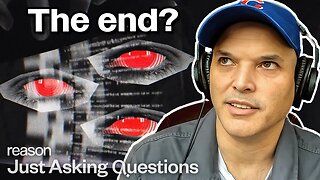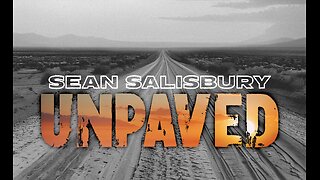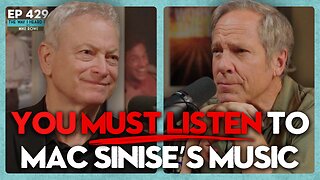Premium Only Content

What the Madoff series left out
A Netflix documentary series blames the SEC for missing the Ponzi scheme and then calls for giving the SEC more power.
----------------------
A recent Netflix documentary series called Madoff: The Monster of Wall Street by Emmy Award–winning filmmaker Joe Berlinger tells the story of the largest Ponzi scheme in history.
Besides the infamous character mentioned in its title, the series' other villain is the Securities and Exchange Commission (SEC), which received complaints about Bernie Madoff starting in the early 1990s, and yet, it not only failed to catch him but helped enable his fraud. During one investigation, all SEC investigators had to do was check an account number to verify trades had actually occurred, which they hadn't, of course, because all of Madoff's trades were fake.
The Netflix series acknowledges that the SEC was complicit in Madoff's scam and that he could have been caught if one investigator assigned to the case had done about 30 minutes of checking. But then it also blames deregulation and free market capitalism for making the fraud possible.
"Resources that had been in New York City, on Wall Street's doorstep, devoted to white-collar crime, to fraud, were being steered away [from Wall Street]," says Henriques of the George W. Bush administration era during which Madoff's operation reached its peak. "For the SEC, this was an exacerbation of an existing problem, as a result of a deregulatory campaign that began with the election of Ronald Reagan in 1980."
Instead of making lazy allusions to the evils of free market capitalism, to better understand the lessons of the Madoff saga, director Joe Berlinger should have consulted the work of the free market economist George Stigler, who won the Nobel Prize in part for his work on "regulatory capture."
In a 1971 paper, "The Theory of Economic Regulation," Stigler argues that while many people believe that "regulation is instituted primarily for the protection and benefit of the public," in fact, it mainly serves the purposes of the largest companies being regulated, which form a symbiotic relationship with their regulatory overseers.
"My thesis is that the industry body in the long run must act by and for the industry," said Stigler in a 1971 speech before the American Enterprise Institute. "The political realities of life dictate that the regulatory bodies become affiliated with and help in what it believes to be the necessary conditions for the survival of its industry."
Stigler's essay focuses mainly on how regulators help existing companies by protecting them from competition, but his theory can also be used to better understand the SEC's failure to catch Madoff. In a 1972 essay, Stigler writes that "the regulating agency must eventually become the agency of the regulated industry…. each needs the other." That's because the career lawyers at the SEC making the decisions have much more to gain personally from having a positive relationship with big industry players than antagonizing them.
What if Harry Markopolos' warnings hadn't been filtered through the SEC? The average person might be better equipped to spot a con man than we give him credit for. But the myth that regulators are primarily motivated to protect the interests of the public causes many to suspend their better judgment.
"The individual consumer, if he is not hampered, is in general capable of a large measure of self-defense against fraud, mishaps, bad luck, and the like," said Stigler in his 1971 speech. "Not all consumers are intellectually competent and well-informed, but most consumers know how to build up defenses against the many vicissitudes that lie in real life. And it is primarily because we have socially so often hampered these effects that we have injured the consumer."
The big takeaway from Madoff: The Monster of Wall Street is that regulators unwittingly facilitated his fraud, just as they may have done with Sam Bankman-Fried and his alleged con. As you watch the Netflix series, think about whether we should really be giving these regulators more time or power. Are they helping us or themselves?
Produced by Zach Weissmueller. Edited by Danielle Thompson. Additional graphics by Lex Villena.
Photo Credits: Tom Williams/CQ Roll Call/Newscom; Bill Clark/CQ Roll Call/Newscom; joe Marino/ABACAUSA/Newscom; CD1/Mandatory Credit : Carrie Devorah / WENN/Newscom; Keystone Pictures USA/ZUMAPRESS/Newscom; Graeme Sloan/Sipa USA/Newscom; Bryan Smith/ZUMApress/Newscom; CD1/Mandatory Credit : Carrie Devorah / WENN/Newscom; J.B Nicholas / Splash News/Newscom; Lev Radin/ZUMAPRESS/Newscom
Music Credits: "Clockwork" by Borden Lulu via Artlist; "The Dark (GOOD Remix) - Instrumental Version" by WEARTHEGOOD via Artlist; "Identify" by Or Chausha via Artlist; "Time Machine" by Twin Signals via Artlist; "Abstract Emotion" by Stefano Mastronardi via Artlist; "The City of Hope" by Bortex via Artlist; "Cartagena Pt. 4" by James Forest via Artlist
-
 1:21:55
1:21:55
ReasonTV
1 month agoMatt Taibbi: The Collapse of the Censorship Regime
1.81K1 -
 LIVE
LIVE
Dr Disrespect
4 hours ago🔴LIVE - DR DISRESPECT - PGA TOUR 2K25 - ONLINE RANKED UNDEFEATED
2,437 watching -
 36:24
36:24
The Brett Cooper Show
1 day ago $1.42 earnedSnow White. What Happened? | Episode 18
3.9K22 -
 LIVE
LIVE
Crypto Power Hour
2 hours agoThe #1 Crypto Show On Rumble! ‘In Crypto We Trust |EP09
104 watching -
 LIVE
LIVE
LFA TV
16 hours agoLFA TV - ALL DAY LIVE STREAM 4/2/25
1,387 watching -
 LIVE
LIVE
Mally_Mouse
4 hours agoLet's Play!! -- Split Fiction
79 watching -
 1:28:21
1:28:21
Russell Brand
3 hours agoUK Unhinged: Arrested for a School WhatsApp Rant! – SF559
124K48 -
 1:09:50
1:09:50
Sean Unpaved
3 hours agoFinal Four Showdown Predictions with Former Coach Fran Fraschilla To Join!
18.5K2 -
 2:35:29
2:35:29
Nerdrotic
6 hours ago $3.21 earnedNerdrotic Nooner 477 w Chris Gore
38.2K8 -
 1:16:44
1:16:44
Mike Rowe
8 days agoGary Sinise Shares the Lessons He Learned From His Late Son, Mac Sinise | #429 | The Way I Heard It
30.8K7